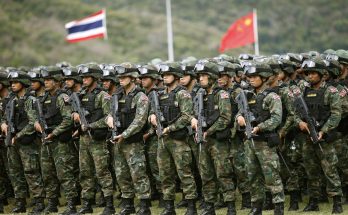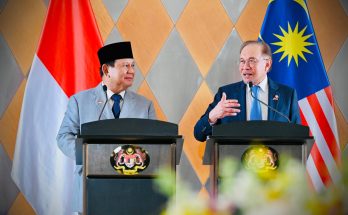BANDUNG, SEATIZENS – Prime Minister Paetongtarn Shinawatra of Thailand recently expressed a heartfelt apology for the mass killing of 78 Muslim citizens during the “Tak Bai Massacre” in 2004. This tragic event occurred when her father, Thaksin Shinawatra, held power, leaving a deep scar on the collective memory of the region. On Thursday, October 24, 2023, Paetongtarn took a significant step to address the past by acknowledging the pain experienced by victims and their families.
Acknowledgment of Tragedy
“On behalf of the government, I apologize for what happened in Tak Bai 20 years ago,” said Paetongtarn during her statement. She added, “I extend my condolences to those affected by the tragedy.” Her words resonate deeply within a community still grappling with the aftermath of the events that unfolded nearly two decades ago. By publicly acknowledging this painful history, she marks a crucial moment for healing and reconciliation in Thai society.
In her address, Paetongtarn noted that compensations have been paid to the families of the victims. This financial assistance aims to provide some relief to those who suffered the irreparable loss of their loved ones. Furthermore, she emphasized, “I hope everyone will continue to remember the violence that occurred in the Tak Bai case. No one wishes to see such incidents happen again.” Her call highlights the importance of remembering the past to prevent similar events in the future.
Paetongtarn urged all parties, including the government, to work diligently to ensure that a tragedy of such magnitude does not occur again. Her call to action recognizes the ongoing tensions in the region and the need for responsible governance. In a nation with diverse religious and ethnic backgrounds, fostering understanding and respect becomes vital in preventing conflict.
The Events of the Tak Bai Massacre

The events of the Tak Bai Massacre took place on October 25, 2004, following the arrest of six village defense volunteers in Narathiwat Province, Southern Thailand. Authorities detained these individuals on suspicion of transferring state weapons to local insurgents. This arrest sparked massive protests, with hundreds gathering outside the Tak Bai police station. Consequently, tensions escalated, leading to clashes between demonstrators and security forces.
Following the chaos, security forces apprehended dozens of protesters and transported them to a military base in Pattani Province. Tragically, 78 Muslim citizens lost their lives due to suffocation while being crammed into trucks during transport. This incident became a significant flashpoint in Thailand’s ongoing struggle with insurgency in the southern regions, where violence has persisted for decades.
A Moment of Reflection
As Thailand prepares to commemorate the anniversary of the Tak Bai tragedy, the nation finds itself at a crossroads. The expiration of the statute of limitations for legal action related to the events marks 20 years since the massacre. In civil law systems, statutes of limitations set a maximum time allowed for certain events to be legally processed. Thus, the expiration raises critical questions about accountability and justice.
Moreover, pressure is building on the Paetongtarn government to issue a decree extending the statute regarding this case. This demand reflects the community’s desire for justice since no individuals have been held responsible for the deaths that occurred during the incident. The lack of action speaks volumes about the ongoing challenges in addressing past injustices, particularly in a region marred by ethnic and religious tensions.Actions
In a powerful demonstration of remembrance, the Muslim community in Thailand, along with activists, held a bicycle ride on Wednesday, October 23, 2023. Participants retraced the tragic route taken by the truck carrying the victims. This event served as a poignant symbol of both remembrance and the demand for justice. The cyclists aimed to honor those who lost their lives in the massacre while raising awareness of the ongoing struggles faced by Muslim communities in Thailand.
Looking Ahead

As the anniversary of the Tak Bai Massacre approaches, the Prime Minister’s apology represents a crucial acknowledgment of the injustices many have faced. Her words may offer a path toward healing, but the need for genuine reconciliation and structural change remains paramount. In a country increasingly aware of the importance of addressing historical wrongs, the future promises to be one of reflection, accountability, and, hopefully, progress.
Read also : Devastation from Tropical Storm Trami: A Tragic Toll on the Philippines
While the scars of the Tak Bai tragedy will never completely heal, the commitment to ensure such violence does not happen again is essential for fostering a more inclusive and peaceful society. By confronting the past openly and actively working toward a reconciliatory future, Thailand takes a significant stride in addressing the complexities and challenges of its diverse population. Through collective effort and a commitment to justice, the country can move forward toward a brighter and more harmonious future.
(Firyal Trinidad)




